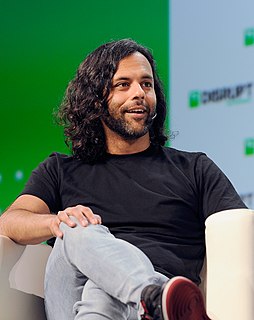A Quote by Andrew Ng
Education is one of the industry categories with a big potential for AI. And Coursera is already doing some of this work.
Related Quotes
I come from a nation where fantastic fiction has a very low status, unless it fits into some very specific categories or is written by already established authors. I don't by any means try to hide what I write, but the way people think in categories here is pretty extreme: it blots out discussing the actual work on its own terms. That's made me loath to talk about my own work in terms of genre, because once you get a label, it sticks and poof go a slew of potential readers and reviewers because eww, fantasy cooties.
There are two companies that the AI Fund has invested in - Woebot and Landing AI - and the AI Fund has a number of internal teams working on new projects. We usually bring in people as employees, work with them to turn ideas into startups, then have the entrepreneurs go into the startup as founders.



























